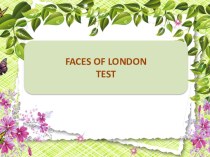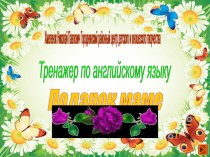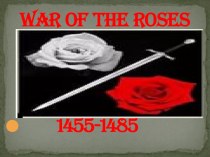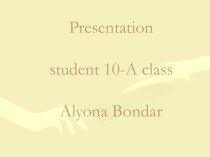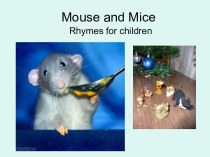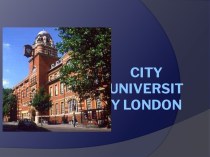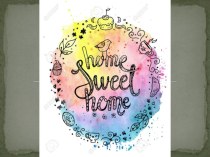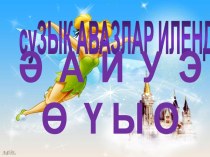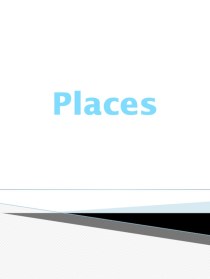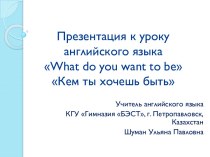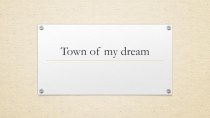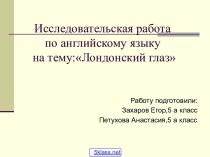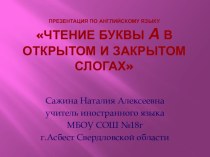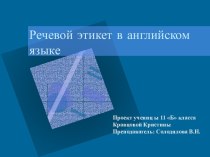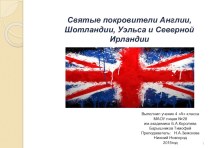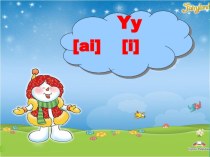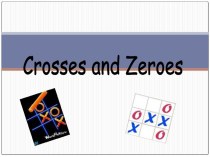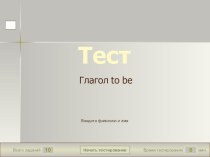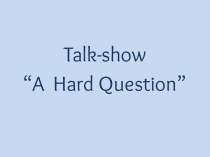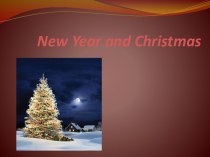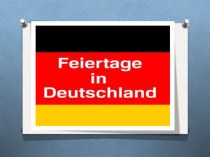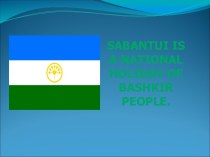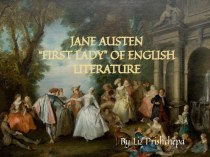- Главная
- Разное
- Бизнес и предпринимательство
- Образование
- Развлечения
- Государство
- Спорт
- Графика
- Культурология
- Еда и кулинария
- Лингвистика
- Религиоведение
- Черчение
- Физкультура
- ИЗО
- Психология
- Социология
- Английский язык
- Астрономия
- Алгебра
- Биология
- География
- Геометрия
- Детские презентации
- Информатика
- История
- Литература
- Маркетинг
- Математика
- Медицина
- Менеджмент
- Музыка
- МХК
- Немецкий язык
- ОБЖ
- Обществознание
- Окружающий мир
- Педагогика
- Русский язык
- Технология
- Физика
- Философия
- Химия
- Шаблоны, картинки для презентаций
- Экология
- Экономика
- Юриспруденция
Что такое findslide.org?
FindSlide.org - это сайт презентаций, докладов, шаблонов в формате PowerPoint.
Обратная связь
Email: Нажмите что бы посмотреть
Презентация на тему Великие умы человечества - Леонардо Да Винчи
Содержание
- 2. ContentLeonardo da VinciChildhoodVerrocchio's workshop and professional lifeOld ageMona Lisa or La GiocondaBicycleAircraftSources of informationСomplete display
- 3. Leonardo da VinciLeonardo di ser Piero da
- 4. ChildhoodLeonardo was born on 15 April 1452 in
- 5. Verrocchio's workshop and professional lifeIn 1466, at
- 6. Old ageFrom September 1513 to 1516, under
- 7. Mona Lisa or La GiocondaAmong the works created by
- 8. Bicycle
- 9. Aircraft
- 10. Скачать презентацию
- 11. Похожие презентации
ContentLeonardo da VinciChildhoodVerrocchio's workshop and professional lifeOld ageMona Lisa or La GiocondaBicycleAircraftSources of informationСomplete display
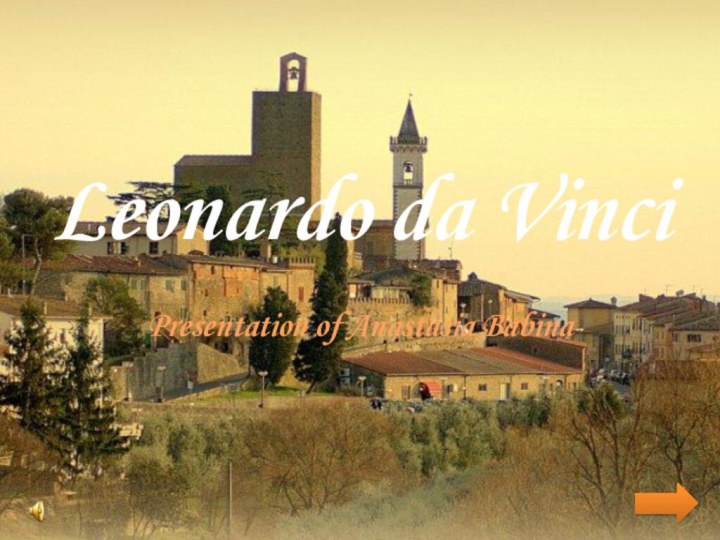
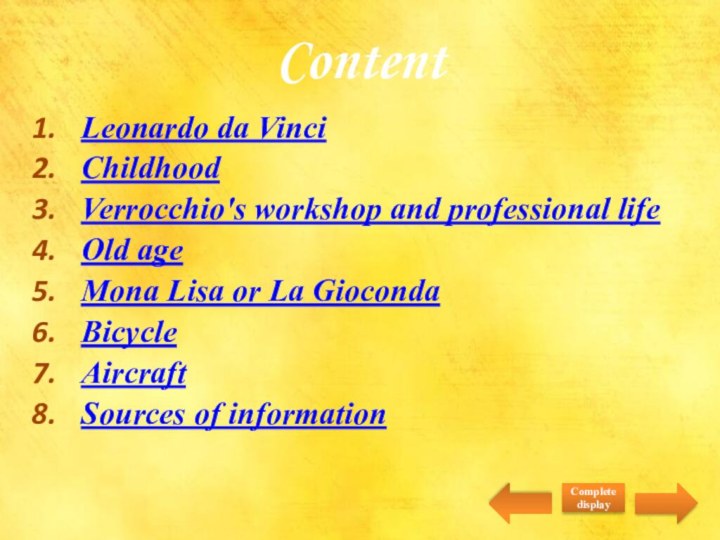
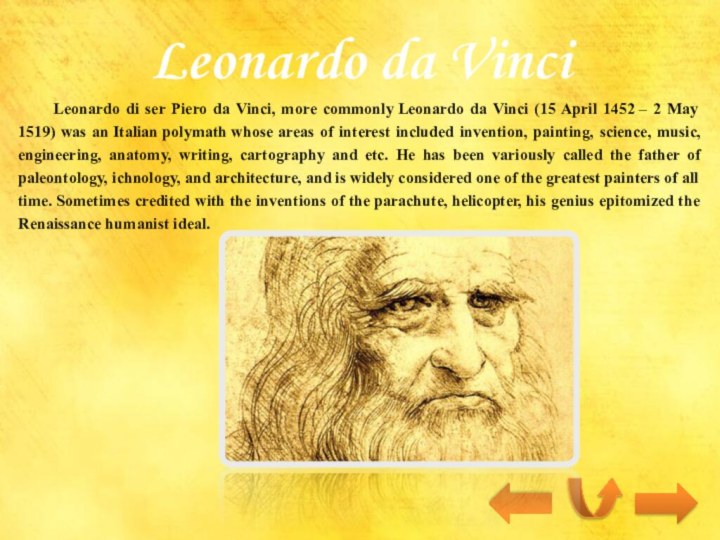
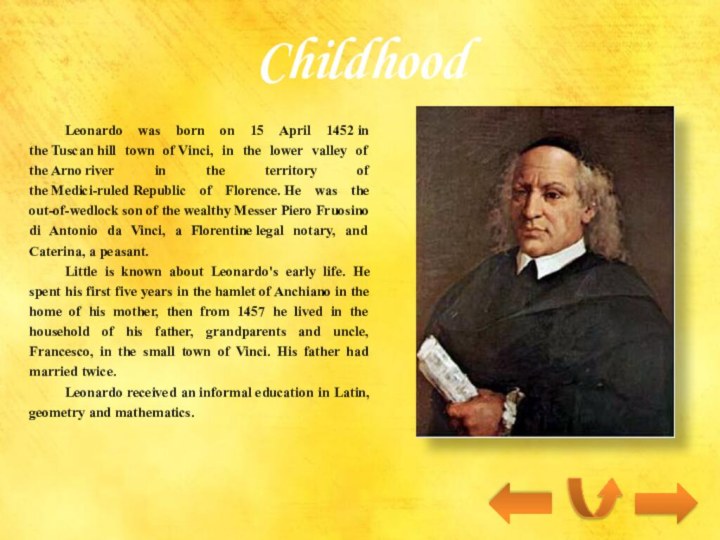

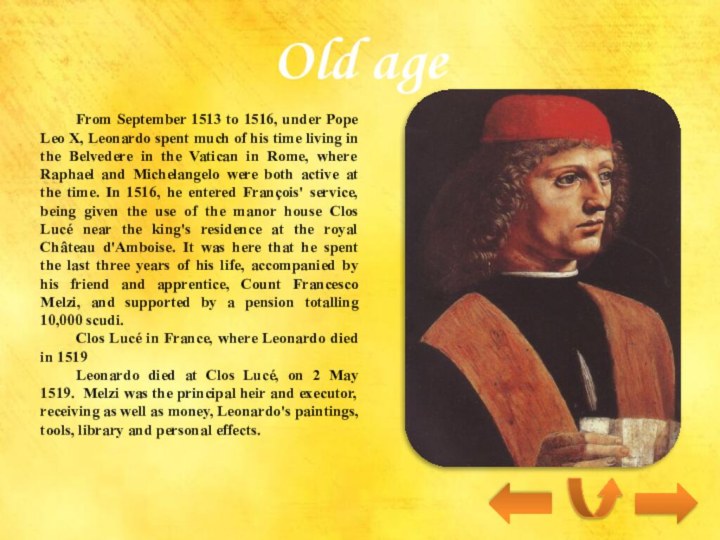
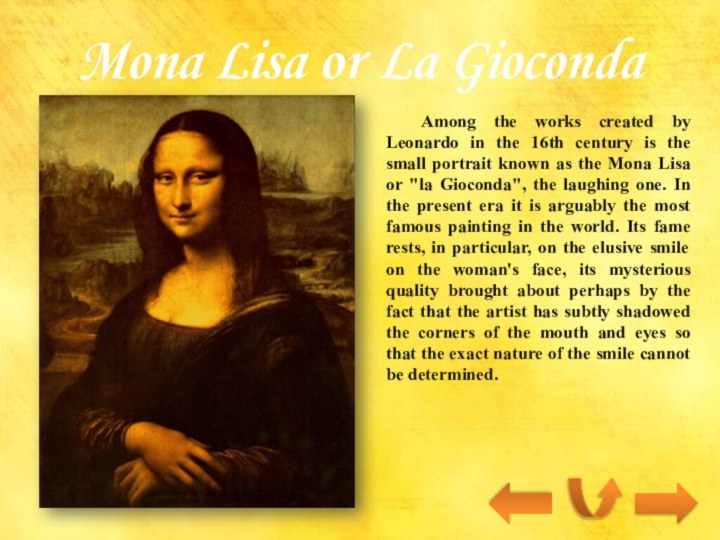
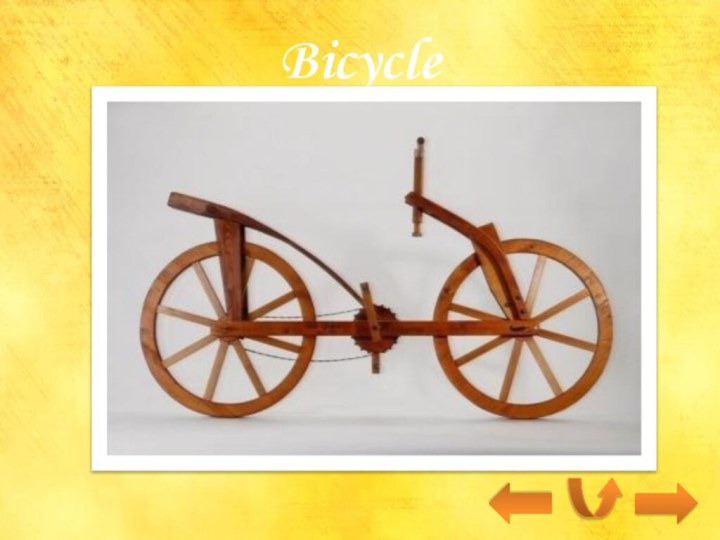
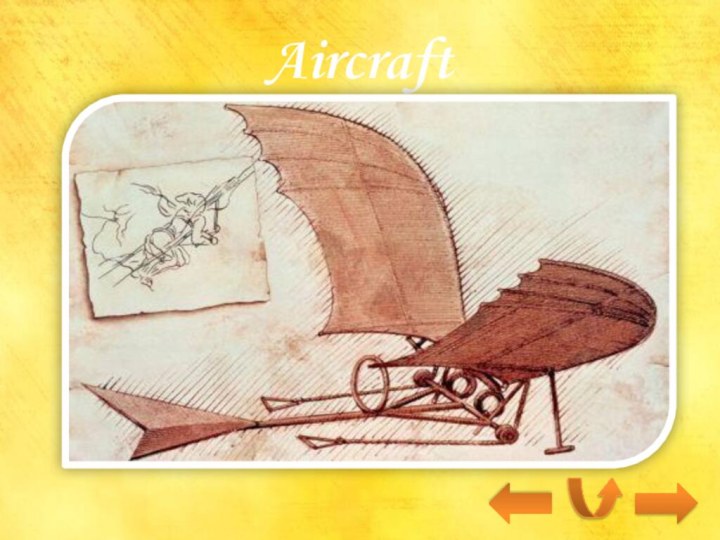
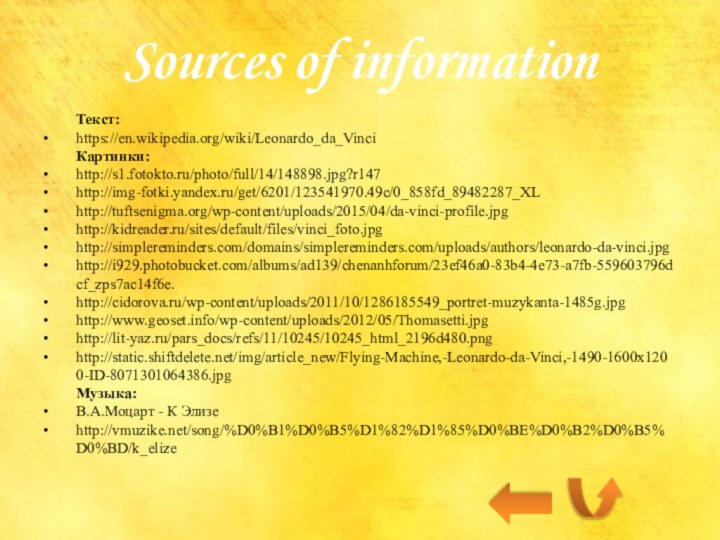
Слайд 2
Content
Leonardo da Vinci
Childhood
Verrocchio's workshop and professional life
Old age
Mona
Lisa or La Gioconda
Слайд 3
Leonardo da Vinci
Leonardo di ser Piero da Vinci,
more commonly Leonardo da Vinci (15 April 1452 – 2 May
1519) was an Italian polymath whose areas of interest included invention, painting, science, music, engineering, anatomy, writing, cartography and etc. He has been variously called the father of paleontology, ichnology, and architecture, and is widely considered one of the greatest painters of all time. Sometimes credited with the inventions of the parachute, helicopter, his genius epitomized the Renaissance humanist ideal.
Слайд 4
Childhood
Leonardo was born on 15 April 1452 in the Tuscan hill
town of Vinci, in the lower valley of the Arno river in
the territory of the Medici-ruled Republic of Florence. He was the out-of-wedlock son of the wealthy Messer Piero Fruosino di Antonio da Vinci, a Florentine legal notary, and Caterina, a peasant.Little is known about Leonardo's early life. He spent his first five years in the hamlet of Anchiano in the home of his mother, then from 1457 he lived in the household of his father, grandparents and uncle, Francesco, in the small town of Vinci. His father had married twice.
Leonardo received an informal education in Latin, geometry and mathematics.
Слайд 5
Verrocchio's workshop and professional life
In 1466, at the
age of fourteen, Leonardo was apprenticed to the artist
Andrea di Cione, known as Verrocchio, whose workshop was "one of the finest in Florence".By 1472, at the age of twenty, Leonardo qualified as a master in the Guild of Saint Luke, the guild of artists and doctors of medicine.
Florentine court records of 1476 show that Leonardo and three other young men were charged with sodomy but acquitted.
In the years 1472-1477 Leonardo worked on the "Baptism of Christ", "The Annunciation", "Madonna with a vase"
In 1481, Da Vinci made the first of his life a big order - altarpiece "The Adoration of the Magi" to the monastery of San Donato a system that is not far from Florence.
1502 - He entered the service of Cesare Borgia as an architect and military engineer
1505 - an outline of the flight of birds
1512 - "Self Portrait“
1507 - Study of the human eye
He created patents: a рarachute, a wheel lock, a bike, a tank, a two-lens telescope and etc.
Слайд 6
Old age
From September 1513 to 1516, under Pope
Leo X, Leonardo spent much of his time living
in the Belvedere in the Vatican in Rome, where Raphael and Michelangelo were both active at the time. In 1516, he entered François' service, being given the use of the manor house Clos Lucé near the king's residence at the royal Château d'Amboise. It was here that he spent the last three years of his life, accompanied by his friend and apprentice, Count Francesco Melzi, and supported by a pension totalling 10,000 scudi.Clos Lucé in France, where Leonardo died in 1519
Leonardo died at Clos Lucé, on 2 May 1519. Melzi was the principal heir and executor, receiving as well as money, Leonardo's paintings, tools, library and personal effects.
